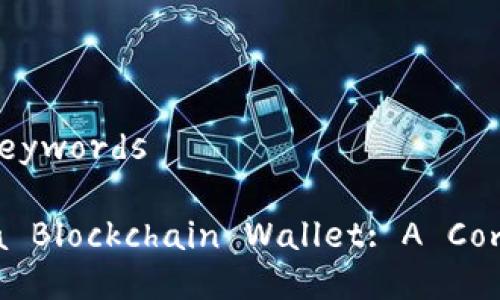Blockchain wallets are digital tools that allow individuals to store and manage their cryptocurrencies securely. Unlike traditional wallets, which hold physical currency, blockchain wallets store information related to cryptocurrency holdings on a blockchain. This technology offers enhanced security and transparency, making it an integral part of the cryptocurrency ecosystem.
#### 2. Types of Blockchain WalletsThere are several types of blockchain wallets, each with its advantages and disadvantages. Hot wallets are connected to the internet, making them convenient for everyday transactions, while cold wallets are offline, providing higher security levels for long-term storage.
#### 3. Setting Up a Blockchain WalletSelecting the right blockchain wallet involves understanding your needs and preferences. It’s crucial to follow a structured setup process and implement security measures right from the beginning.
#### 4. Operating a Blockchain WalletOnce your wallet is set up, understanding how to send and receive cryptocurrencies is essential. Familiarizing yourself with transaction fees and the time taken for transactions to be confirmed can significantly enhance your user experience.
#### 5. Security Best PracticesSecurity is paramount while operating a blockchain wallet. Private key management is critical, and adopting measures like two-factor authentication can safeguard your assets against potential threats.
#### 6. Advanced Wallet FeaturesAs the blockchain ecosystem evolves, so do wallet features. Understanding advanced functionalities, such as multi-signature wallets and the ability to stake cryptocurrencies, can provide greater flexibility and rewards.
#### 7. Future of Blockchain WalletsBlockchain wallets are expected to evolve alongside technological advancements. Emerging trends could reshape financial systems, highlighting the critical role wallets will play in the future of finance.
#### 8. FAQs on Blockchain WalletsMany users have common queries about blockchain wallets. Addressing frequently asked questions can help demystify any uncertainties, making users more confident in managing their wallets.
### Questions and Detailed Answers (600 words each) #### Question 1: What is a Blockchain Wallet?At its core, a blockchain wallet is a digital application or device that enables users to store, send, and receive cryptocurrencies. Unlike a traditional wallet that holds physical cash, a blockchain wallet manages cryptographic keys that serve as proof of ownership over various digital assets. Each wallet contains a pair of cryptographic keys: a public key, which is akin to your bank account number, and a private key, akin to your PIN code. It's crucial to keep the private key confidential, as anyone with access could control your funds.
There are various types of blockchain wallets, including software wallets (both mobile and desktop), hardware wallets, and paper wallets. Software wallets are often more user-friendly and are suitable for regular transactions. However, they are more susceptible to hacks, hence why many users opt for hardware wallets to store their assets offline. On the other hand, paper wallets entail printing out the public and private keys on paper, providing a form of cold storage. Each wallet type has its pros and cons, impacting the user experience depending on specific needs.
Moreover, wallets are also categorized into hot wallets, which are connected to the internet, facilitating quick transactions, and cold wallets, which are offline and more secure for long-term storage. Understanding the different formats helps individuals select a wallet that aligns with their usage patterns and security preferences.
#### Question 2: How to Choose the Right Blockchain Wallet?
Choosing the right blockchain wallet hinges on understanding your requirements and what you value in terms of security, accessibility, and features. The first step is defining the type of user you are. If you plan on frequently trading cryptocurrencies, a hot wallet may be ideal due to its ease of use. However, if your focus is on holding assets for the long term, consider a cold wallet for enhanced security.
When evaluating wallets, consider their compatibility with various cryptocurrencies. Not all wallets support every currency, so ensure the wallet can accommodate any coins you plan to hold. Additionally, look into the wallet's security features. Does it offer two-factor authentication? How does it manage private keys? Reading reviews and gaining insights from other users can provide valuable information.
User-friendliness is another critical factor. A wallet should have a straightforward interface that enables users to carry out transactions without difficulty. For beginners, a more intuitive wallet is preferred, while advanced users might appreciate more complex features.
Finally, don’t forget to assess the wallet's backing company. Established companies are often more credible and provide better customer support, which can be essential if you run into issues or have questions.
#### Question 3: What Security Measures Should Be Taken?Security is a top concern when operating a blockchain wallet. First and foremost, ensure that you are using a secure internet connection, as public Wi-Fi can expose your wallet to potential risks. It is advisable to use a Virtual Private Network (VPN) for an added layer of security.
Implementing two-factor authentication (2FA) adds another safeguard, requiring you to verify your identity through an additional method, such as a text message or authentication app, when logging in or making transactions. Additionally, always keep your private keys confidential and consider advanced options, like multi-signature wallets, which require multiple keys to authorize a transaction.
Regularly update your wallet software to protect against vulnerabilities. Many wallet providers release updates with enhanced security measures, so staying up-to-date is essential. If you are using software wallets, be wary of phishing scams and always navigate directly to the website rather than clicking on links in emails.
Finally, consider backing up your wallet. Many wallets will allow you to generate a recovery phrase or seed, which can be used to recover your assets if you lose access. Store this information securely and consider keeping a physical copy in a safe location.
#### Question 4: How to Send and Receive Cryptocurrency Using a Wallet?
Sending and receiving cryptocurrency using a blockchain wallet is a straightforward process, but it requires careful attention to details. When receiving cryptocurrencies, the sender will need your wallet’s public address. This address can be found within your wallet interface, typically under a “Receive” section. Always double-check the address before sending, as blockchain transactions are irreversible.
When you want to send cryptocurrency, select the “Send” option in your wallet. You will need to input the recipient's wallet address along with the amount you wish to send. It’s essential to ensure that you are sending the correct currency, as sending one type of cryptocurrency to the address intended for another can result in loss of funds.
Be aware of transaction fees, which vary depending on the blockchain network's traffic. Higher fees can expedite transaction processing, but they are optional; you can generally adjust the fee level based on your preferences. After completing the transaction, you should receive a confirmation that includes a transaction ID, which you can use to track its status on a blockchain explorer.
In some cases, you may need to wait for a certain number of confirmations, which validates the transaction and ensures its security. Understanding these basics will help facilitate smoother transactions and minimize errors.
#### Question 5: What are the Risks Associated with Blockchain Wallets?While blockchain wallets provide a secure way to manage and store cryptocurrencies, several risks are inherent in their usage. First and foremost, user error accounts for a significant percentage of missing funds. This can involve sending cryptocurrency to the wrong address, losing access to private keys, or neglecting to back up wallet information.
Moreover, software wallets, while highly functional, can be vulnerable to hacks when connected to the internet. Malware or phishing attacks can compromise your wallet. Investors should remain vigilant and recognize potential scams. Anyone involved in cryptocurrency should always verify the legitimacy of websites or applications before sharing any personal information.
Another risk is reliance on centralized wallet providers that store your private keys on your behalf. If these companies face legal issues or go out of business, you may lose access to your funds. This leads to an ongoing debate about self-custody versus convenience, as more individuals seek to control their private keys themselves.
Lastly, regulatory changes in various regions can impact the legal status of cryptocurrency transactions, which can affect how users manage their wallets. Keeping informed about these developments can help mitigate potential issues associated with compliance. Overall, users must remain educated and proactive about protecting their digital assets.
#### Question 6: What is the Future of Blockchain Wallets?The future of blockchain wallets looks promising as the cryptocurrency landscape continues to evolve. With increasing adoption of digital currencies, wallets are likely to become more sophisticated, catering to a broader audience while prioritizing user-friendly experiences. As people become more familiar with blockchain technology, specialized wallets for specific cryptocurrencies or uses may emerge, increasing overall functionality.
Security advancements will also play a crucial role. As threats evolve, so too will the security measures implemented by wallet providers. Multi-signature wallets are already gaining popularity, and innovations in biometric security or hardware encryption may soon become standard to enhance user protection further.
Integration with decentralized finance (DeFi) applications is another exciting area of growth, allowing users to leverage their crypto holdings for earning interest, trading, or lending without intermediaries. This seamless integration would further enhance the functionality of wallets, making them central to the financial ecosystem.
Furthermore, as governments begin to formalize regulations surrounding cryptocurrencies, wallets may implement features that aid compliance, enhancing their acceptance in mainstream finance. The concept of ‘banking the unbanked’ could be realized through mobile wallets that offer basic banking services to underserved communities.
Overall, with rapid advancements in blockchain and financial technologies, blockchain wallets will likely evolve, becoming integral tools in global finance.
leave a reply